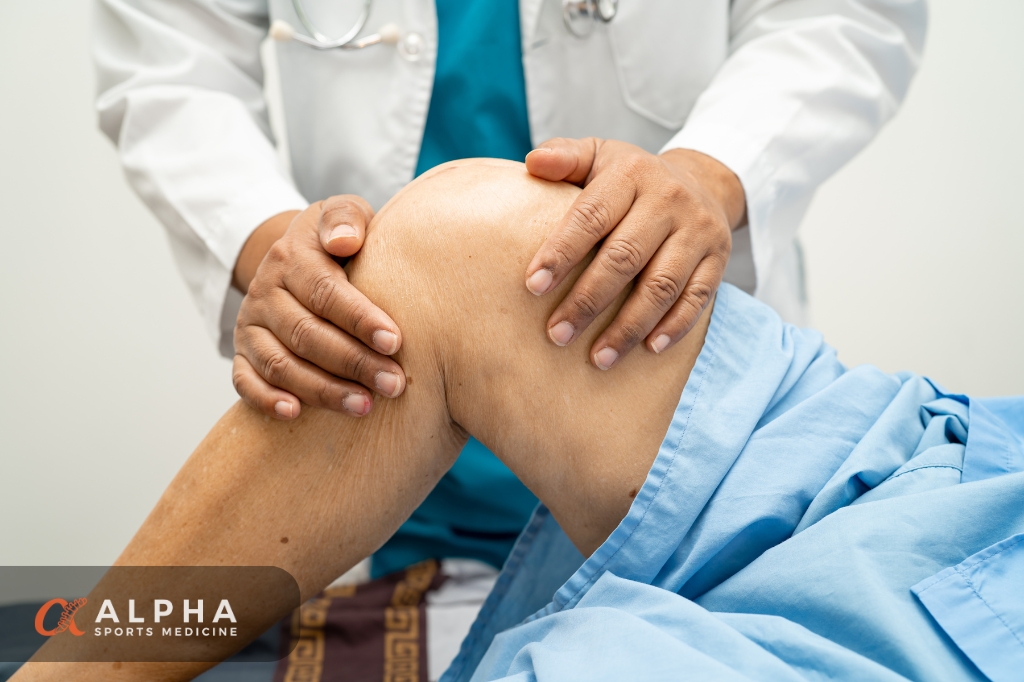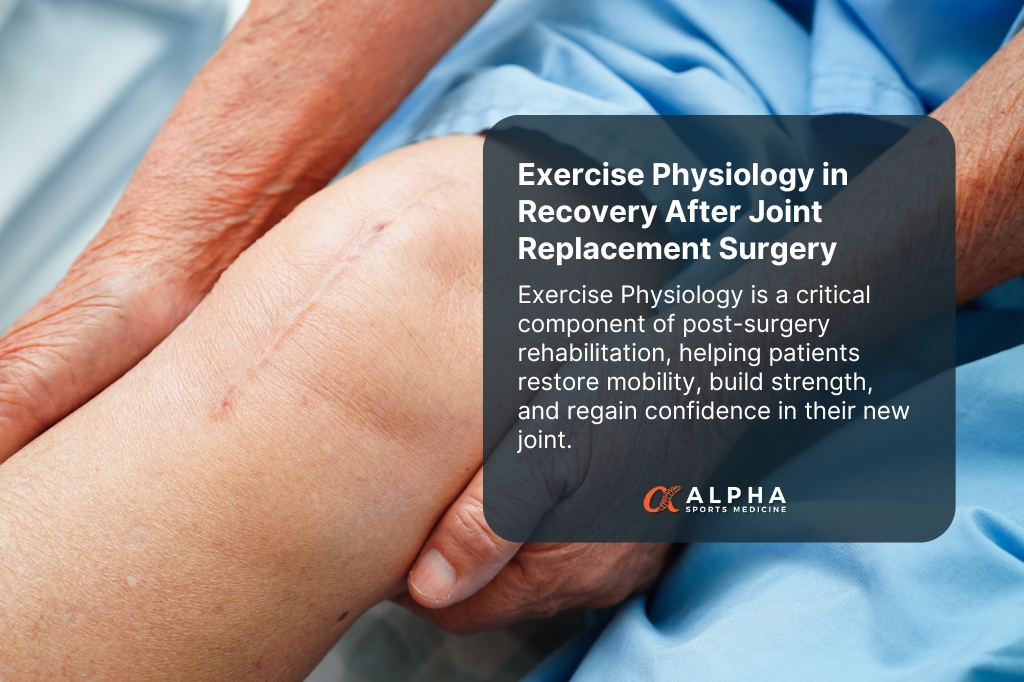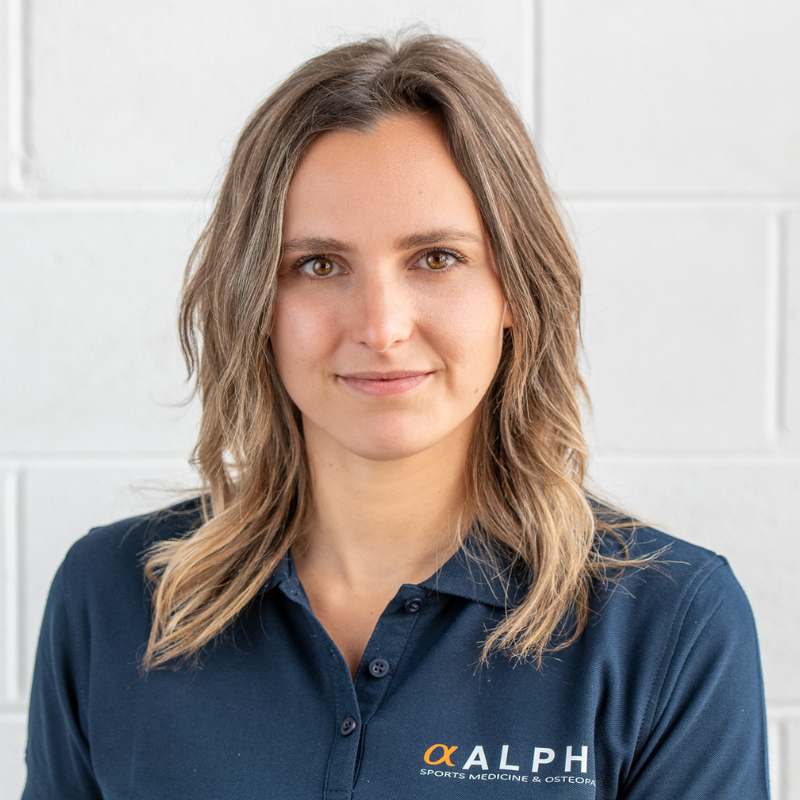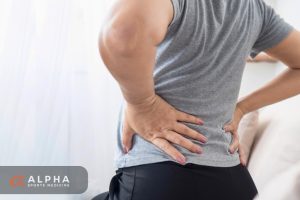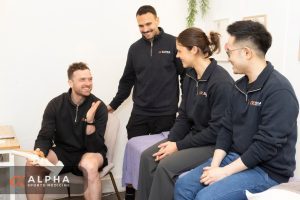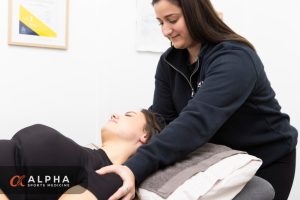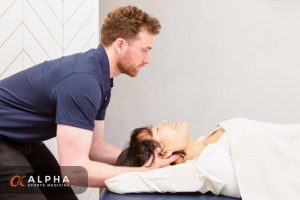Joint replacement surgery, whether it’s for the hip, knee, or shoulder, can be a life-changing procedure, offering relief from chronic pain and restoring mobility. However, the journey to full recovery doesn’t end with the surgery itself. At Alpha Sports Medicine in Newport, we emphasize the critical role that Exercise Physiology plays in the rehabilitation process, helping patients regain strength, mobility, and confidence in their new joint.
Understanding Joint Replacement Surgery
Joint replacement surgery is typically recommended when a joint has been damaged by arthritis, injury, or other conditions, and when non-surgical treatments have failed to provide relief. The most common types of joint replacement surgeries include:
- Hip Replacement: This procedure involves replacing the damaged hip joint with a prosthetic implant, helping to alleviate pain and improve mobility.
- Knee Replacement: Knee replacement surgery involves replacing the damaged surfaces of the knee joint with artificial components to restore function and reduce pain.
- Shoulder Replacement: In shoulder replacement surgery, the damaged parts of the shoulder are replaced with prosthetics to improve movement and reduce discomfort.
These surgeries are major procedures that require a significant recovery period. While the surgical intervention addresses the structural problems in the joint, regaining full function and returning to daily activities requires a comprehensive rehabilitation plan.
The Importance of Post-Surgery Rehabilitation
Rehabilitation is an essential component of the recovery process after joint replacement surgery. Without proper rehabilitation, patients may experience prolonged pain, stiffness, and limited mobility, which can impede their return to normal activities. This is where Exercise Physiology becomes vital.
What is Exercise Physiology?
Exercise Physiology is the study of how physical activity affects the body, particularly in terms of improving health, fitness, and performance. Accredited Exercise Physiologists (AEPs) are healthcare professionals who specialize in designing and delivering exercise programs tailored to an individual’s needs, especially for those recovering from surgery or managing chronic conditions.
At Alpha Sports Medicine, our Exercise Physiologists work closely with our team of Osteopaths to help our patients who have undergone joint replacement surgery to create personalized exercise plans that promote healing, enhance strength, and improve joint function.
How Exercise Physiology Aids Recovery After Joint Replacement Surgery
1. Restoring Mobility
One of the primary goals of post-surgery rehabilitation is to restore mobility in the affected joint. After joint replacement, it’s common for patients to experience stiffness and limited range of motion due to the surgery itself and the body’s natural healing processes. Exercise Physiology plays a crucial role in gently and progressively restoring joint mobility through specific exercises designed to improve flexibility and range of motion.
2. Strengthening the Surrounding Muscles
After joint replacement surgery, the muscles surrounding the joint often weaken due to disuse or the trauma of surgery. Strengthening these muscles is essential for supporting the new joint, improving stability, and preventing further injury. An Exercise Physiologist will develop a strength training program that focuses on the key muscle groups around the joint, helping to build strength gradually and safely.
3. Improving Balance and Coordination
Joint replacement surgery can temporarily affect a patient’s balance and coordination, particularly in the early stages of recovery. This can increase the risk of falls and other injuries. Exercise Physiology includes exercises that target balance and proprioception (the body’s ability to sense its position in space), which are crucial for safe movement and reducing the risk of falls.
4. Reducing Pain and Swelling
Exercise is one of the most effective ways to manage post-operative pain and swelling. While it might seem counterintuitive, gentle, controlled movement can help reduce inflammation, improve circulation, and alleviate pain. Exercise Physiologists guide patients through low-impact exercises that promote healing without putting undue stress on the new joint.
5. Enhancing Cardiovascular Health
Recovery from joint replacement surgery requires overall physical fitness, including cardiovascular health. Cardiovascular exercises, such as walking, swimming, or cycling, can be gradually introduced as part of the rehabilitation program. These activities not only aid in recovery but also improve general health and reduce the risk of complications.
6. Promoting Long-Term Joint Health
One of the key benefits of working with an Exercise Physiologist after joint replacement surgery is the development of habits and routines that promote long-term joint health. Patients learn how to incorporate regular exercise into their daily lives, which is essential for maintaining the function of the replaced joint, preventing future issues, and enhancing overall well-being.
Why Choose Alpha Sports Medicine in Newport for Your Post-Surgery Recovery?
At Alpha Sports Medicine in Newport, we are committed to providing comprehensive care that goes beyond the surgical procedure. Our team of experienced Exercise Physiologists and Osteopaths understand the unique challenges faced by patients recovering from joint replacement surgery and tailors rehabilitation programs to meet each individual’s needs.
1. Personalized Rehabilitation Plans
Every patient’s recovery journey is different, which is why we create personalized rehabilitation plans that take into account the type of surgery, the patient’s overall health, and their recovery goals. This customized approach ensures that each patient receives the care and support they need to achieve the best possible outcomes.
2. Evidence-Based Practices
Our Exercise Physiologists use evidence-based practices to design and implement exercise programs that are safe, effective, and grounded in the latest research. This approach ensures that patients benefit from the most up-to-date techniques in rehabilitation.
3. Holistic Care
At Alpha Sports Medicine, we believe in a holistic approach to recovery. In addition to exercise, we consider factors such as nutrition, mental well-being, and lifestyle when developing our rehabilitation programs. Combined with our team of Osteopaths and Myotherapists, this comprehensive approach helps patients recover more fully and enjoy a better quality of life.
4. Ongoing Support
Recovery from joint replacement surgery doesn’t happen overnight, and we are here to support our patients every step of the way. Our Exercise Physiologists provide ongoing guidance, adjustments to exercise programs as needed, and encouragement throughout the recovery process.
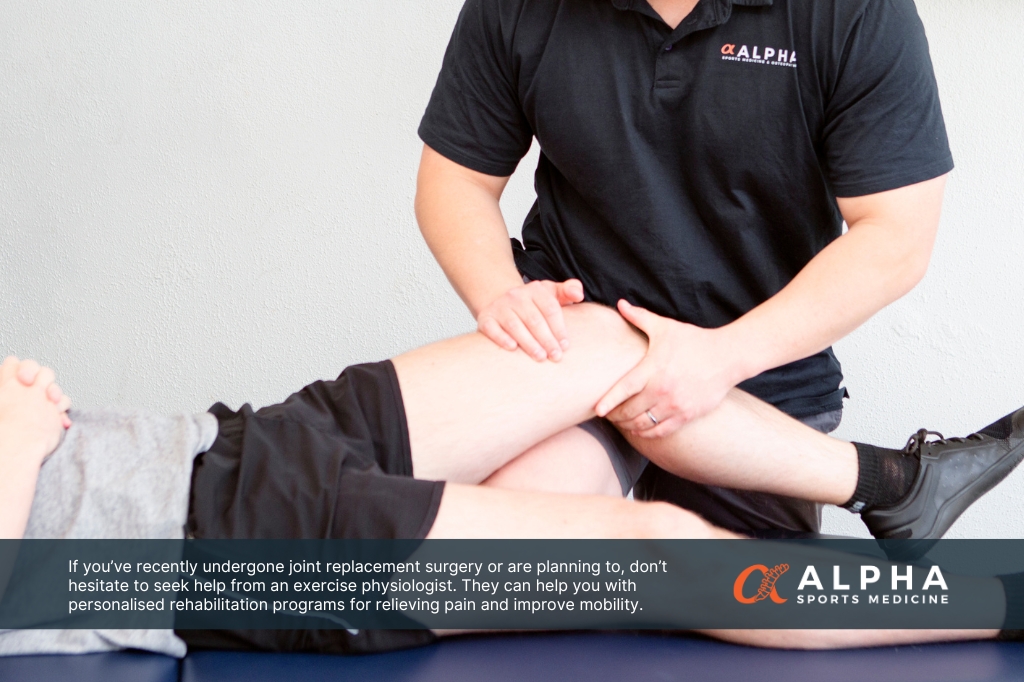
Conclusion
Joint replacement surgery is a significant step toward relieving pain and improving mobility, but the journey to full recovery requires more than just the surgical procedure. Exercise Physiology is a critical component of post-surgery rehabilitation, helping patients restore mobility, build strength, and regain confidence in their new joint.
At Alpha Sports Medicine in Newport, our team of skilled Exercise Physiologists is dedicated to helping patients achieve a successful recovery and enjoy the full benefits of their joint replacement surgery. If you’ve recently undergone joint replacement surgery or are planning to, contact us today to learn more about how our personalized rehabilitation programs can help you get back to the activities you love.
Author
-

Dr. Ashton Wilson began her studies with a three year Bachelor of Biomedical Science, where she majored in Anatomy and Physiology. She then switched to a more hands on approach, where she completed a three year Bachelor of Clinical Science and a two year Masters of Osteopathy. Ashton has since completed further education and is a qualified Strength and Conditioning Coach as well as a Kinetic Link Trainer.
View all posts

